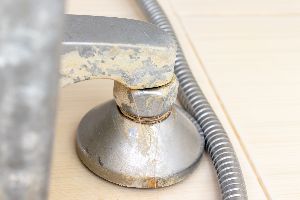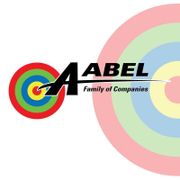
Mineral-laden hard water can lead to a number of frustrating issues. It occurs as the liquid percolates through deposits of limestone, chalk, or gypsum, picking up calcium and magnesium carbonates, bicarbonates, and sulfates. If you’ve ever noticed a chalky film on your dishes or mineral buildup on taps and other plumbing fixtures, you may already know that you have hard water. Luckily, a water softener device is an effective solution. Use the following guide to find out more about how this equipment works and why it could be right for your home.
What Are Water Softeners & How Do They Work?
A water softener is any filtration system that removes or reduces high levels of calcium, magnesium, and other chemical elements in a water supply. The devices come in several styles suited to varying needs and budgets.
The most common water softening process involves the exchange of ions—molecules with a positive charge. Calcium and magnesium are both positively charged molecules. As hard water passes through plumbing equipped with softening systems, it’s filtered through negatively-charged resin beads or minerals known as zeolites.

These function similarly to magnets, drawing calcium and magnesium particles out of the liquid and replacing them with small amounts of sodium or potassium ions. As a result, hard water turns soft, and you’ll no longer have to deal with a mineral-heavy supply.
What Are the Benefits of Water Softeners?
Softened water eliminates the mineral scale left behind by hard water that can gradually clog and damage plumbing fixtures and pipes. As a result, your maintenance and repair needs will be more manageable, and your plumbing system should last longer. The devices can also reduce wear and tear on water-dependent appliances, such as washing machines and dishwashers, which helps you avoid costly and premature replacements.
Many who shower and bathe with hard water notice that a chalky texture is often left behind on skin, dishes, and surfaces; more soap is required to clean and wash off the residue. This is because the calcium in hard water bonds with soap molecules, displacing natural oils with mineral deposits.
Softeners reduce the amount of soap and water needed for daily tasks and hygiene, lowering your water bills and household cleaning expenses. Those who have these devices installed in their homes typically notice significantly softer hair and skin since they retain more natural oils and moisture and won’t be coated in layers of dried mineral matter.
When you’re ready to enjoy soft water at home, turn to A-Abel Family of Companies. Since 1937, this award-winning local business has been providing a wide range of plumbing and HVAC services to residents of Dayton, OH, and the Greater Miami Valley. These professionals will quickly assess your water softening needs and install reliable, efficient equipment to address them. Call (937) 434-4343 to schedule an appointment, or visit the website to learn more about their services.
About the Business
(30 reviews)
Have a question? Ask the experts!
Send your question

